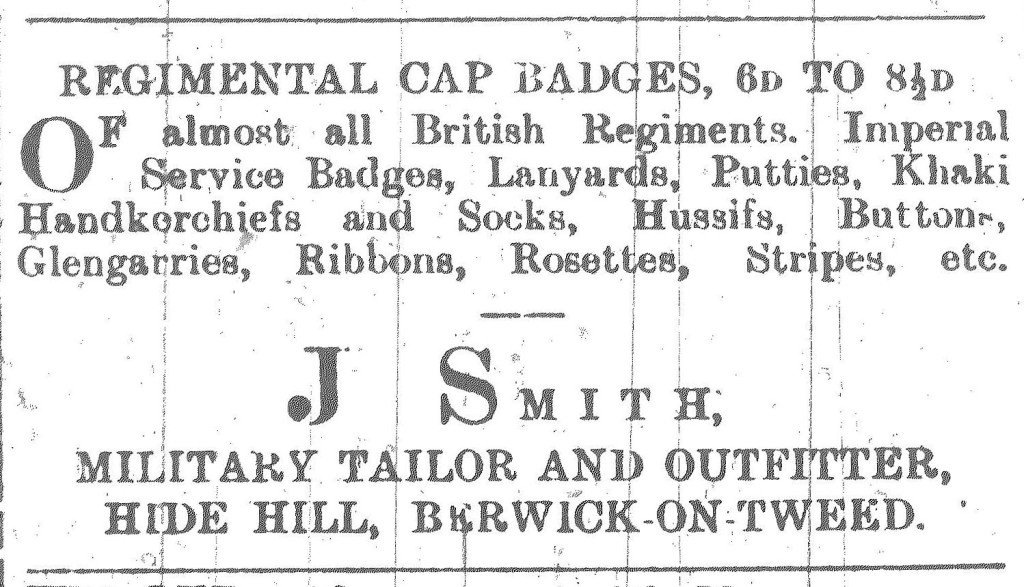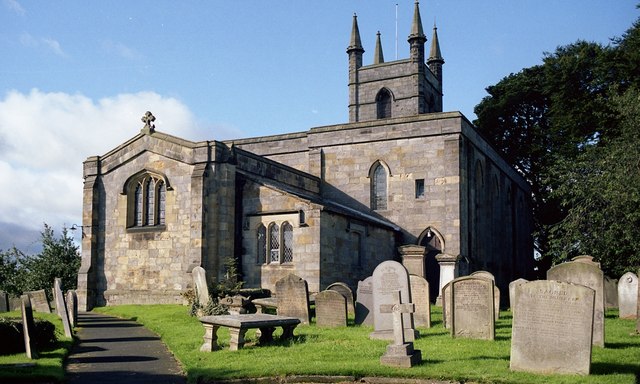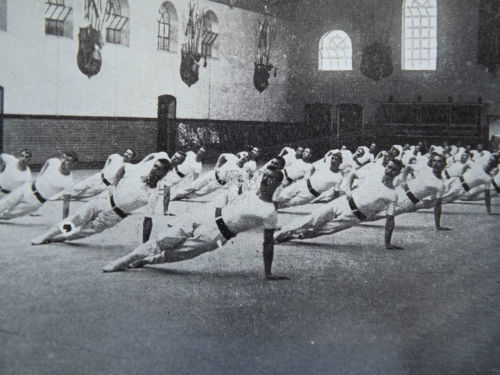BERWICK ADVERTISER, 30 JULY 1915
HARBOUR REVENUE AND THE WAR
INADVISABILITY OF PUBLIC DISCUSSION
The restriction on East Coast shipping are being more forcibly impressed upon the ratepayers of our own immediate district by the short discussion which occurred at the Berwick Town Council meeting on Tuesday evening. The inability of the local Harbour Commissioners to meet the interest on a by no means large bond is sufficient testimony to the decline in shipping during the past year at the port of Berwick. It was a state of matters which no one contemplated this time last year, and it is satisfactory to learn, despite the intense difficulties placed on shipping and fishing, the trade at the harbour shows a tendancy to revive these last few weeks. There is no doubt whatever that with the advent of normal times activities at the harbour will resume their natural condition, and that the interest, temporarily advanced by the Town Council as guarantors to the bond, will be duly refunded. In the unusual circumstances the Town Council had no alternative but to meet the payment of the interest, and there is no reason why there should be any feeling in the community over what is only a very small item emanating out of the war. The appeal made by Alderman Short to regard the discussion as private might very well have seriously occurred to the Council earlier. Had the Council been unanimous in Committee, as they were to all extents and purposes in public, the whole matter could have been quite easily adjusted. In these strenuous days when every encouraging little item is faithfully served up to the reading public of the enemy on the other side of the North Sea, the less said about decadent sea ports on the east Coast the better. It is a line of action which would have undoubtedly met with the approval of the naval and military authorities who keep a very strict censor on items of such a nature. It may occur to the Council of Borough on the East Coast that there are other things quite as essential to safeguard as bright lights. A spoken word, and an admission on the part of a responsible body such as a Town Council that one of the ports is in a temporary insolvent condition is a grave enough concession indeed, and, garnished and magnified by Tuetonic ingenuity, it can be translated into language out of all proportion to the actual facts. But there is no use lamenting over spilt milk, though it may, and certainly ought to be, a warning to responsible authorities to exercise every degree of care and caution in these eventful days.

LOCAL NEWS
Belford Church – the church has been enriched by the placing of two finely executed stained glass windows. They are, what is known in architecture, as the early English period, and are lancet in shape. In one window is an illustration of “Charity,” which is depicted by a large figure under richly-coloured canopy work, and standing on an ornamental base, with the following inscription: – “Erected

by her brother-in-law, the Vicar of Belford, in loving memory of Racheal Smale McLeish, a devoted church worker, who died on December 14th, 1914; aged 58 years.” In the other window is a figure of St. Cecilia in the act of playing an organ, being patron of music, with the following inscription:-“Erected by her father, the Vicar of Belford, in loving memory of his beloved daughter Helen Katharine Ogilvie Robertson, who died on January 11th, 1914, aged 37 years.” The windows were designed and executed by Messrs G. J. Bagnley and Son, artists in stained glass, Newcastle.
CROSS-COUNTRY
Splendid Military Run at Berwick
Thirty-Three Regiments Represented
The military cross-country race at Berwick on Saturday proved an eminently successful gathering, and the commontion and stir it occasioned in the ancient Borough will be an event to be remembered as an outstanding incident in the annals of the Great War. The weather was showery, and, though the ground was heavy underfoot, a more ideal summer afternoon could not have been desired. The thousands of spectators who lined the fine vantage ground on the overlooking Walls, as well as on the more expansive meadow where the race started and finished, were enabled to witness the ceremony under most comfortable atmospheric conditions. A sharp shower fell at the conclusion of the subsequent recruiting meeting, but it was short in duration, and it did not interfere with the pleasure of the spectators in witnessing the completion of a most interesting and finely contested race. No one could but be impressed with the sight of so many hundreds of fine specimens of young

fellows in the perfect bloom of physical strength and manhood, all too, trained in the use of arms, and ready and willing to do their bit whenever the opportunity came. As they marched in gymnastic costume, in perfect swing and unison of step to the captivating strains of the pipe music to take up their allotted positions at the starting point it was a singularly charming spectacle. Not a few of the competitors felt the inspiration of the familiar Highland reels, and gave vent to their itch of foot by indulging in brief spells of a dance. To the thinking spectator there came a pang of intense regret to know of a certainty that so many splendid specimens of athletic manhood would ere many weeks were over have to face the terrible scenes of havoc and bloodshed which are being enacted on the plains of Flanders. The arrangements of the committee in charge were admirable. There was ample convenience for so many competitors dressing and preparing for the race, several large tents having been erected, while the course was well mapped out with flags. The start was given by Colonel Peterkin, and though at the finish there was great excitement and some crushing ample room was allowed to the runners to reach the goal.
The presentation of prizes by Colonel Peterkin in the evening in the Corn Exchange along with tea to the competitors was a scene of much enthusiasm and good hearted fellowship. The memory of the great race, and the stir and bustle it created in the streets will be pleasantly remembered by all the citizens, and the only feeling of regret is that so poor a response was made to the recruiting efforts at so imposing a military display.

